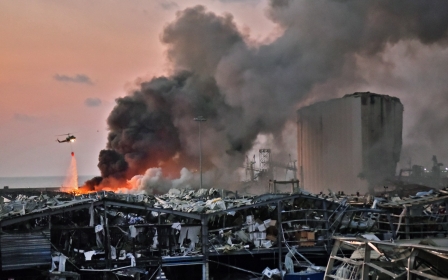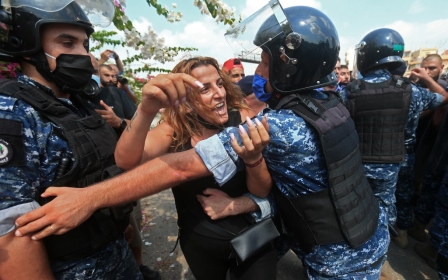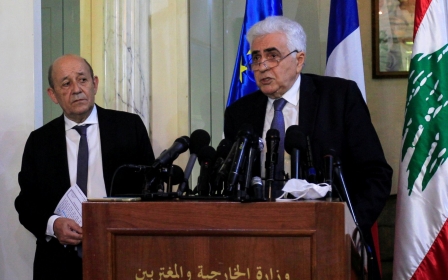In pictures: Explosion sends shockwaves across Beirut
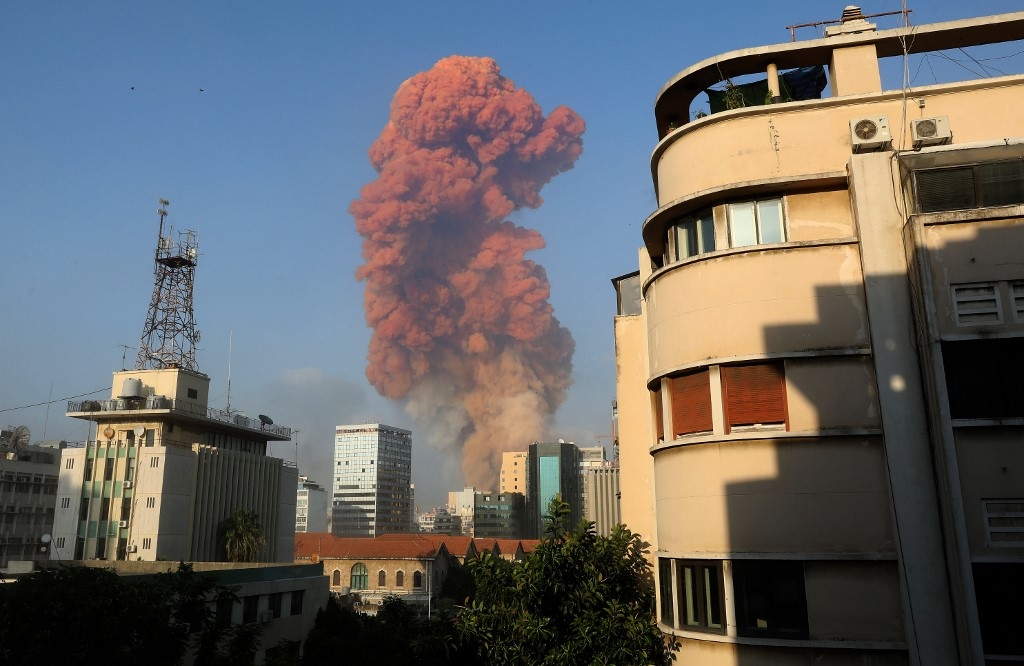
A huge explosion at Beirut's main port shook the city on Tuesday, causing destruction for miles, as officials scramble to explain the cause of the blast. At least 50 people were killed and nearly 3,000 were wounded, with those numbers expected to rise, according to the Lebanese Ministry of Health. Immediately following the explosion, a large plume of thick red smoke could be seen rising into the sky (AFP)
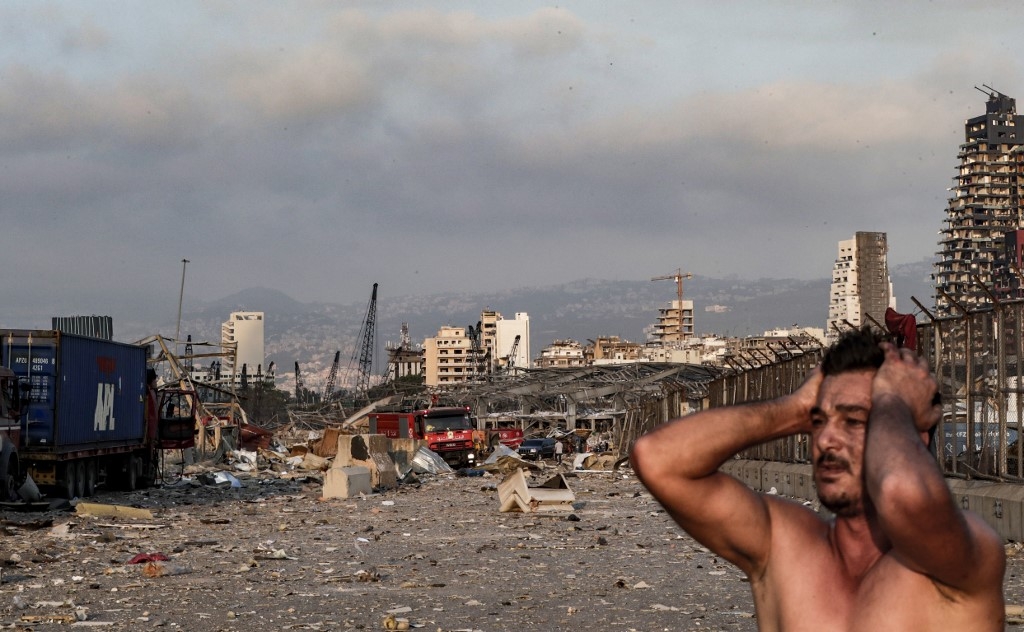
Initial reports said a warehouse containing fireworks was the source of the blast, but the head of Lebanon's General Security Abbas Ibrahim dismissed such speculation. "It appears that the explosion took place in a warehouse of confiscated highly explosive material," Ibrahim told local media at the scene. Interior Minister Mohammed Fahmi said preliminary investigations found that the warehouse contained sodium nitrate that had been seized from a ship over a year ago and was due to be disposed of (AFP)
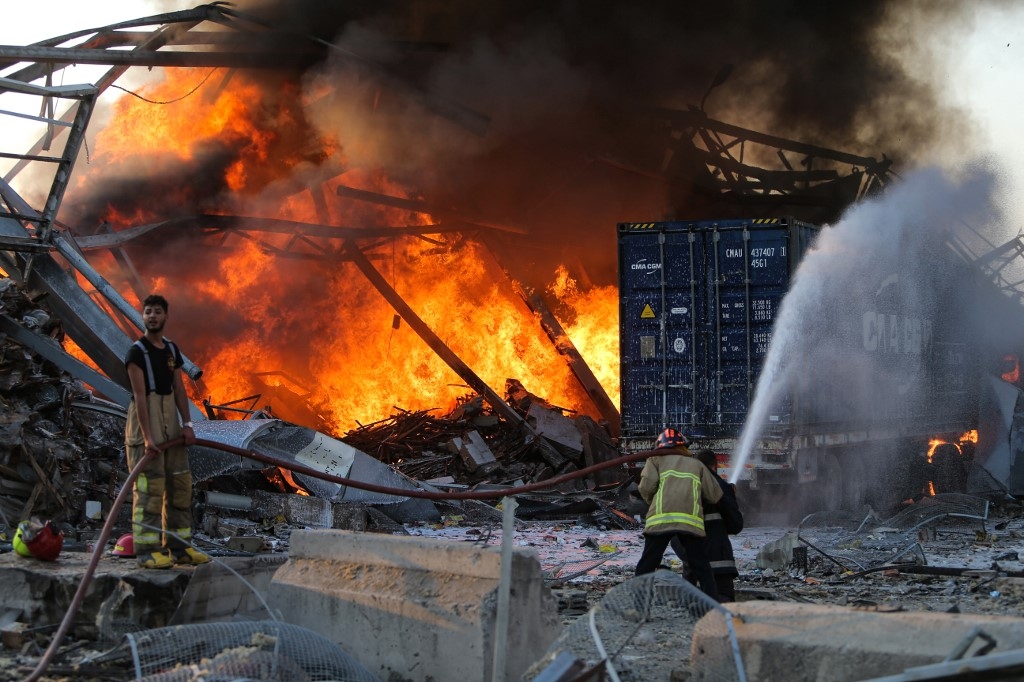
Helicopters and first responders arrived on the scene to put out the fire at the port that raged for hours after the explosion. Several images from the ground showed firefighters climbing over rubble to evacuate the severely wounded on sheets of metal wiring (AFP)
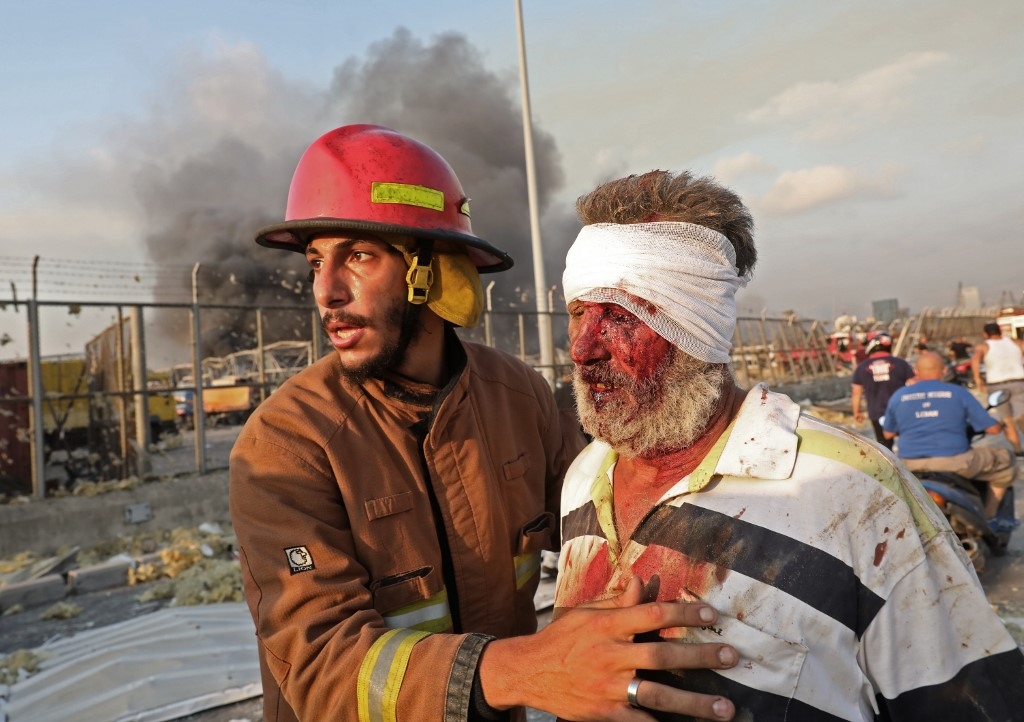
The governor of Beirut port told Sky News that a team of firefighters at the scene had "disappeared" after the explosion. Meanwhile, Health Minister Hamad Hassan called the blast "a disaster in every sense of the word". A soldier at the port told AFP: "It's a catastrophe inside. There are corpses on the ground" (AFP)
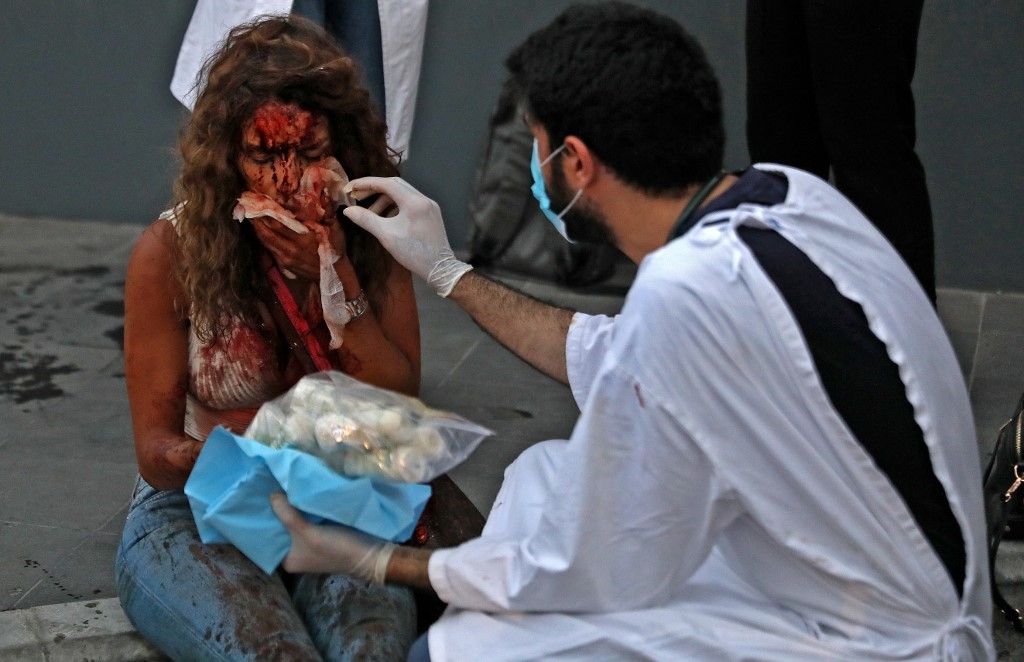
With so many injured, hospitals - which have also reported damage from the blast - have been inundated with patients. Locals on social media have said that some of the wounded were being turned away from facilities unable to cope with the strain on a healthcare system already struggling under the coronavirus pandemic. The Lebanese Red Cross urged people to go to hospitals only if they are critically ill and called on people to donate blood if they are able to (AFP)
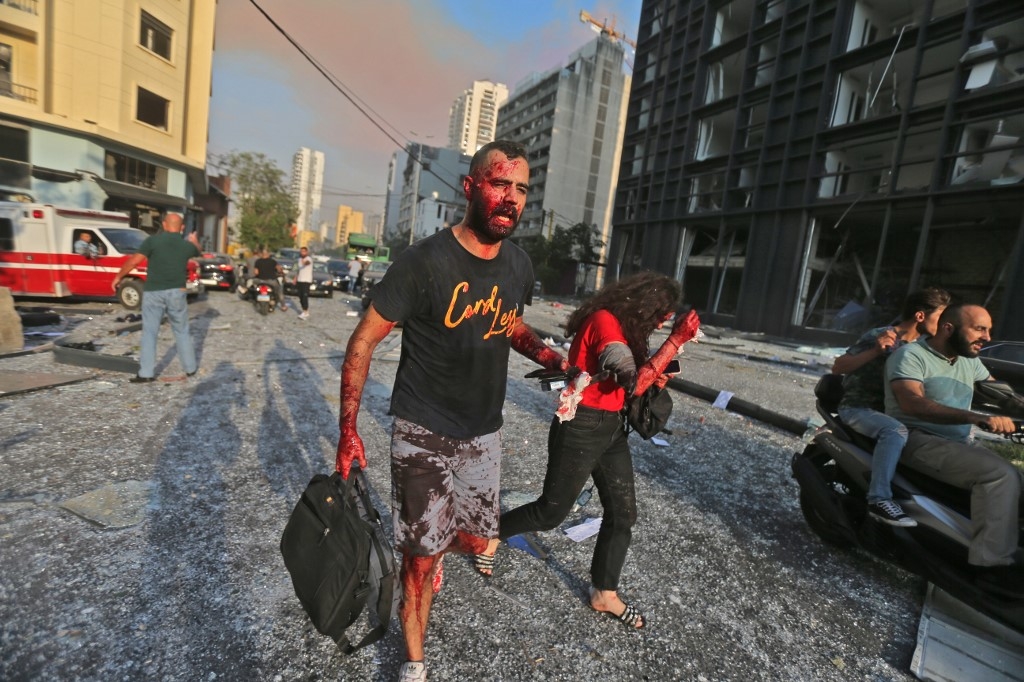
Windows were smashed across the city by the blast, the tremors of which were felt even beyond Beirut as ambulances flooded the streets. Nour, a young woman in west Beirut's busy Hamra district told Middle East Eye the city was "all glass". "People around me were in hysterics. They were panicking. They were asking 'what’s going on, what’s going on'" (AFP)
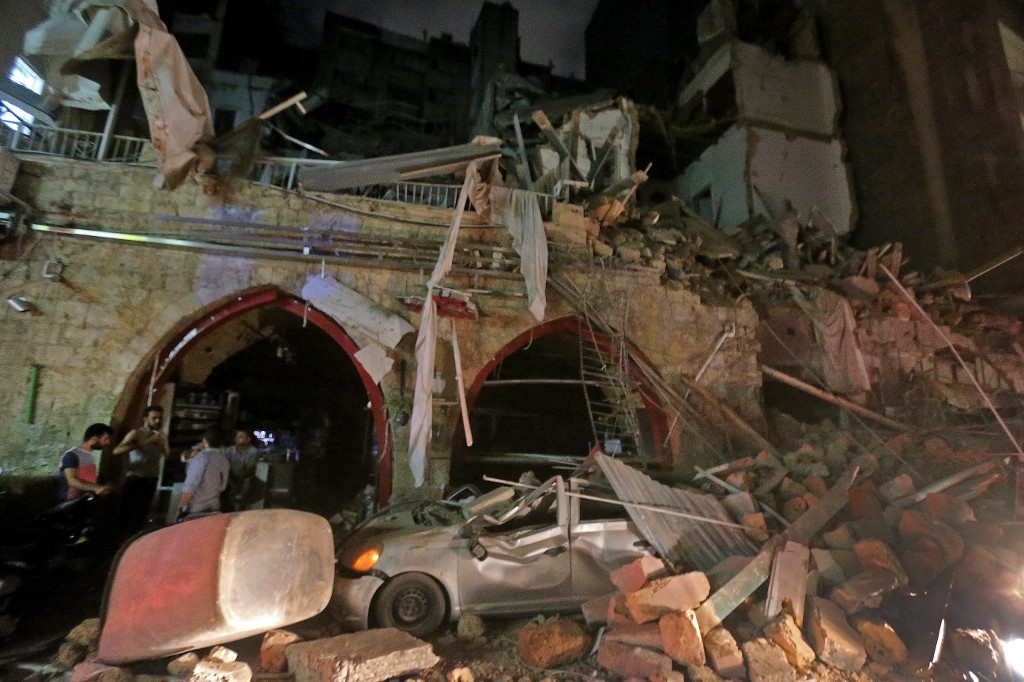
Lebanese media carried images of people trapped under rubble, some bloodied, after the massive explosion (AFP)
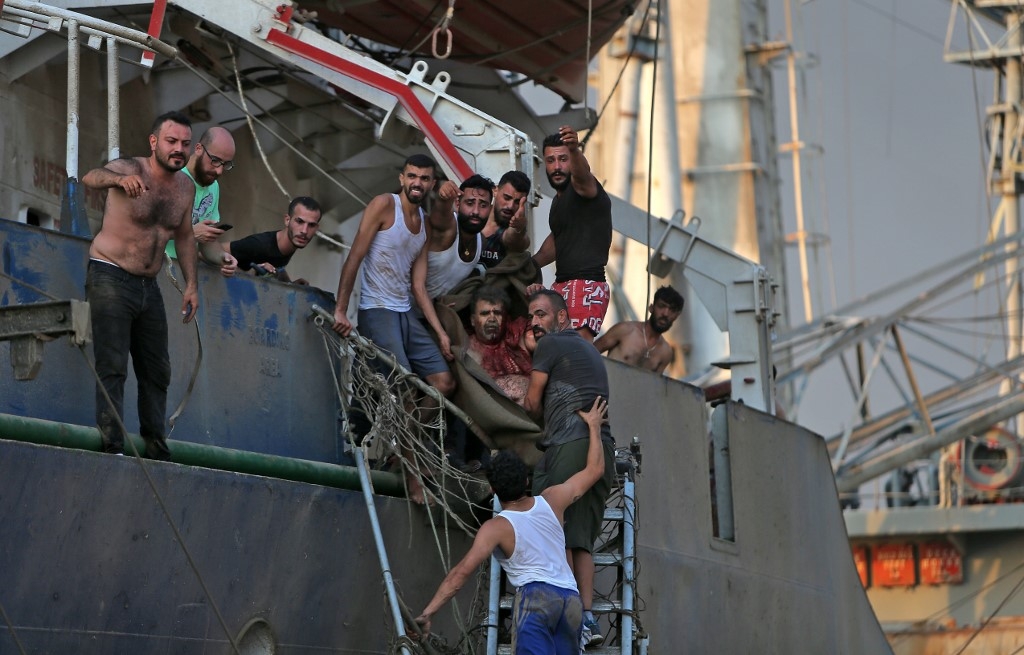
Others were injured and stranded on nearby ships unable to come to the port after the blast. The port zone was cordoned off by the security forces, allowing access only to a string of ambulances, fire trucks with wailing sirens, and relatives of workers who had been inside (AFP)
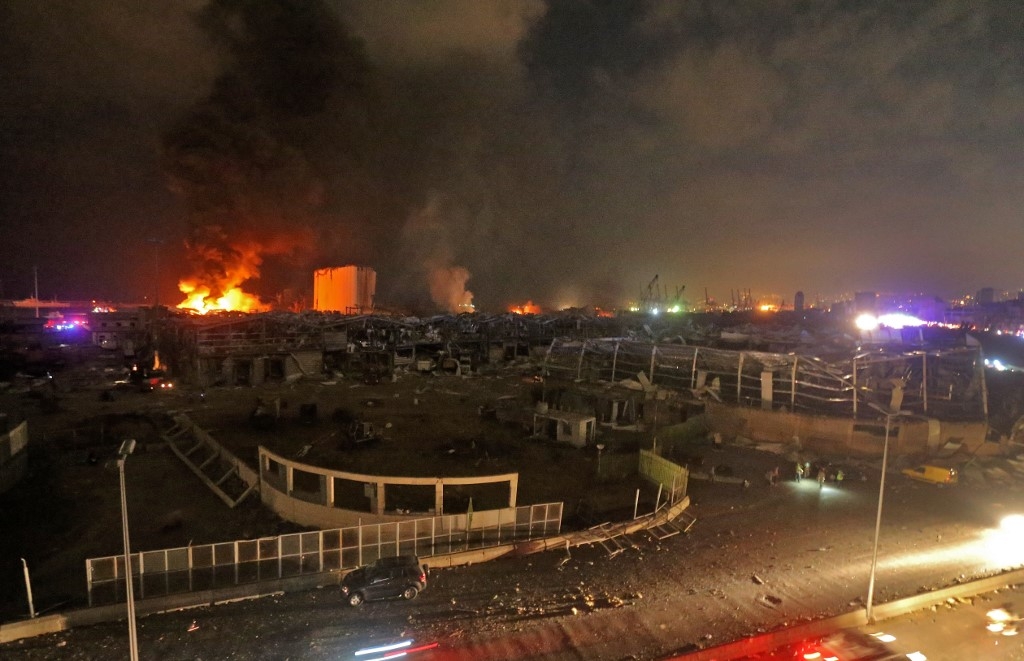
As night fell on Beirut, responders appeared to continue their struggle to put out the subsequent blaze and recover those still trapped amid the destruction. Prime Minister Hassan Diab has called for a day of mourning to be respected on Wednesday (AFP)
Middle East Eye propose une couverture et une analyse indépendantes et incomparables du Moyen-Orient, de l’Afrique du Nord et d’autres régions du monde. Pour en savoir plus sur la reprise de ce contenu et les frais qui s’appliquent, veuillez remplir ce formulaire [en anglais]. Pour en savoir plus sur MEE, cliquez ici [en anglais].


